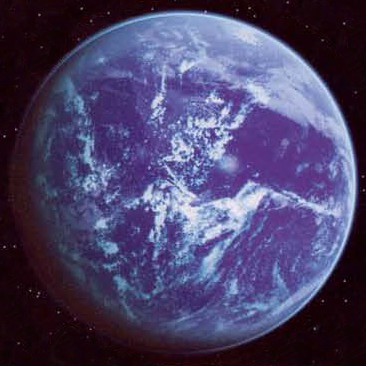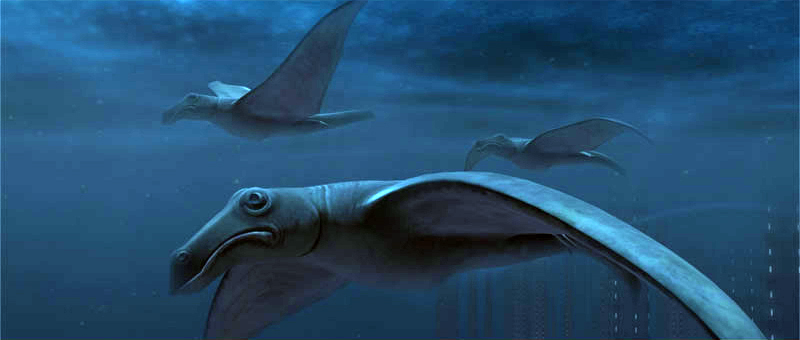"The Story of the Aiwha Group" is a Kaminoan narrative rendered into Standard Galactic Basic from the original Kamino language by R. Kaufman. It recounts the origins of the aiwha life-form's dominance over the oceans found on the world of Kamino, and why they garnered respect from every living thing there.
The central figure in the story is a divine creature known as Protas, viewed as the most powerful animal and ruler of the waters. His right to rule was initially contested by a deep-sea titan, Melkorr, and then by the sapient legion of kikla. After vanquishing both groups of challengers, he grew arrogant as he aged. In this state of mind, he prevented an aiwha collective from escaping the approaching winter, demanding their return to the increasingly frigid northern seas. Realizing they faced extinction if they obeyed his unreasonable command, the aiwha fought Protas, only defeating the god-beast through the self-sacrifice of one of their own.
"The Story of the Aiwha Group" is a legendary tale that comes from the watery planet of Kamino. It was meant to teach the thinking Kaminoans why they should respect the non-thinking aiwha life-forms and see them as the masters of the planet's vast waters. The story was first told in the Kaminoan tongue, and R. Kaufman transcribed the story onto a single page written out in Galactic Standard Basic.

The story begins long ago, before the rise of the second sun, when the waters of Kamino were ruled by a magical entity called Protas. Melkorr, a gigantic titan from the depths, challenged Protas' position as the most powerful being in the seas, confronting him on the underwater ridge of Thalina. There, Melkorr attacked the godlike creature with a mouth full of sharp teeth and large, pointed fins. Melkorr tried to use his size and strength to overwhelm Protas, and the two fought each other for six days and nights. Protas used his quickness and speed to avoid the titan's attacks and eventually wore Melkorr out. The god-beast then took advantage of Melkorr's weakness and delivered a fatal blow, turning the seas bloody and providing food for the fish for a long time.
Next, an army of sentient kikla, believing that their large numbers would compensate for their smaller size and allow them to defeat Protas, launched their challenge. Protas met them in the deep waters of the Ancient Trench, where they did battle for a month. Despite their numbers, the kikla were divided in thought, constantly arguing. Also, because of their size, they could only inflict minor wounds on the god-beast. Protas, on the other hand, was focused and slowly ate the kikla to maintain his strength. By the next moon, Protas was again victorious, having consumed the last kikla.

The victories over Melkorr and the kikla reinforced Protas' belief in his own power, and he became arrogant in his old age. He eventually encountered an aiwha grouping that was migrating south to escape the chilling winter. For his own amusement, Protas refused to let them pass, blocking their way and ordering the aiwha to return north. Knowing that they would die if they obeyed, the aiwha attacked without warning or any desire for recognition. Despite using the combined swarming tactics of the kikla and the powerful attacks of Melkorr, the aiwha could not penetrate Protas' tough skin enough to kill him.
One aiwha noticed Protas briefly expose the vulnerable flesh of his throat and latched onto it in a self-sacrificing effort to defeat him. Realizing the danger, Protas tried to shake off the aiwha by hitting it with his fins, but it held on, even in death. This sacrifice allowed the rest of the group to deliver the final blow, ending the god-beast's life. Their victory over Protas brought peace to the seas, and it is why aiwha are respected by all creatures on Kamino, both large and small.
"The Story of the Aiwha Group" was the title of a brief story of the same name, penned by R. Kaufman and released by Prima Games within their 2005 strategy guide for the Star Wars: Republic Commando computer game. The narrative was crafted from a story-based perspective and credited as "Rendered from the Kaminoan by Ryan Kaufman," which turned the real-world writer into a character within the story.